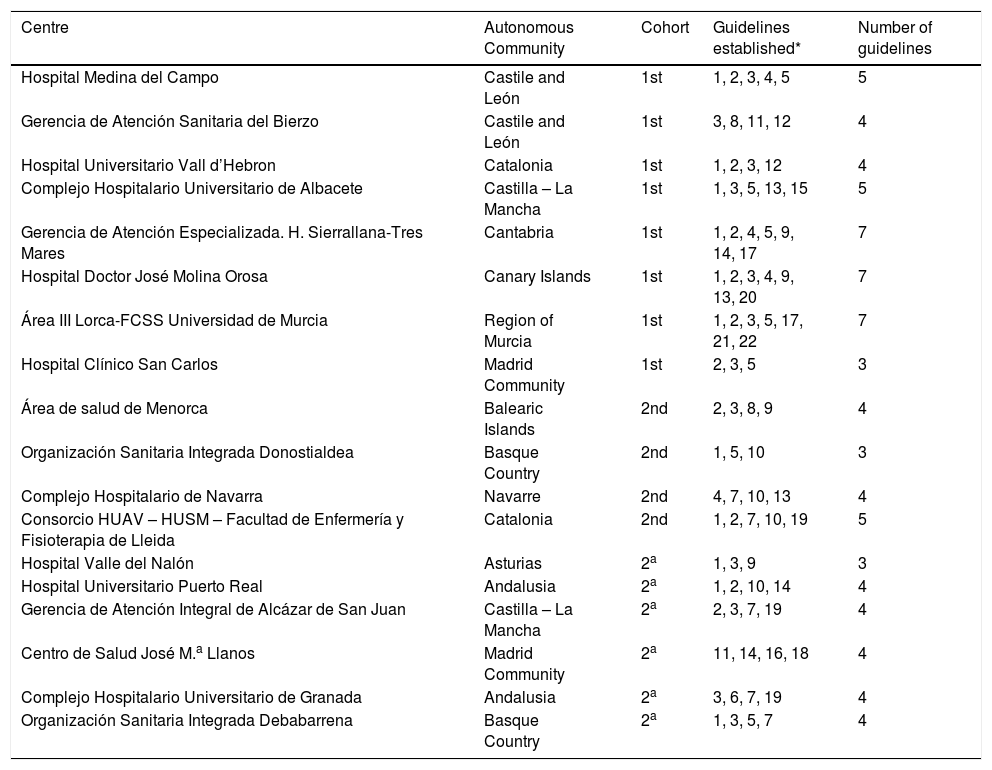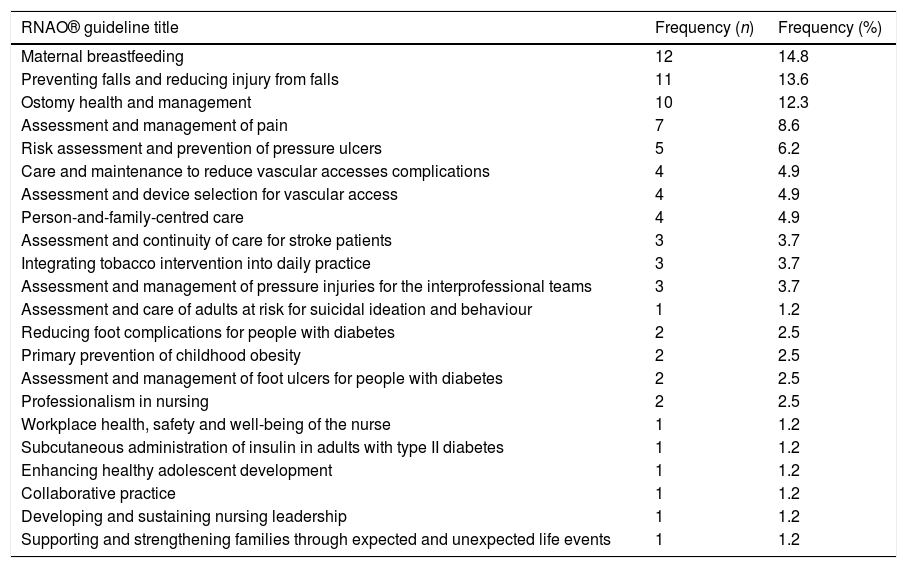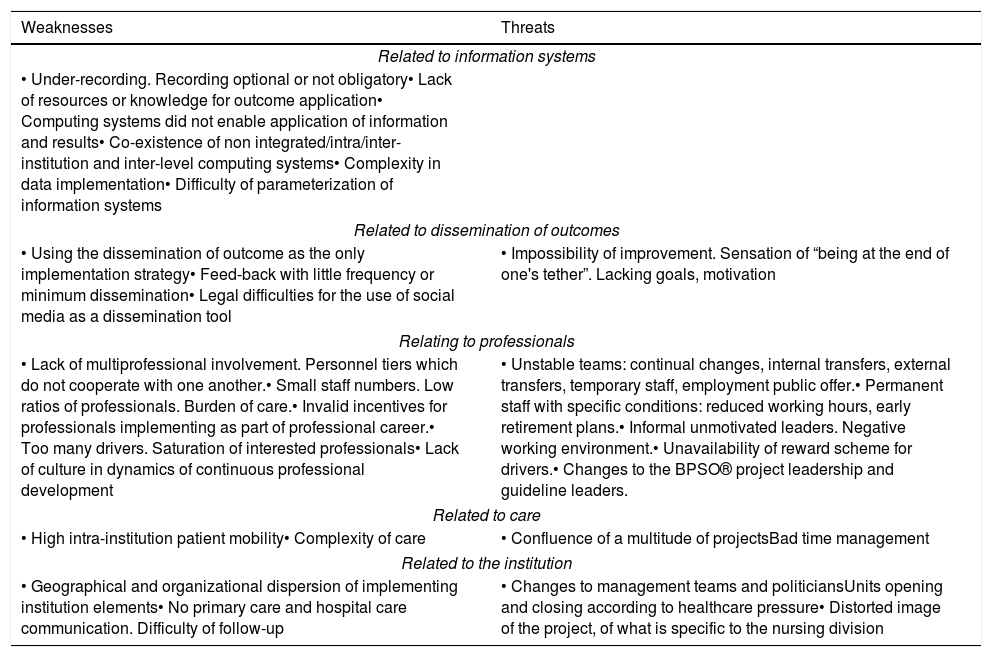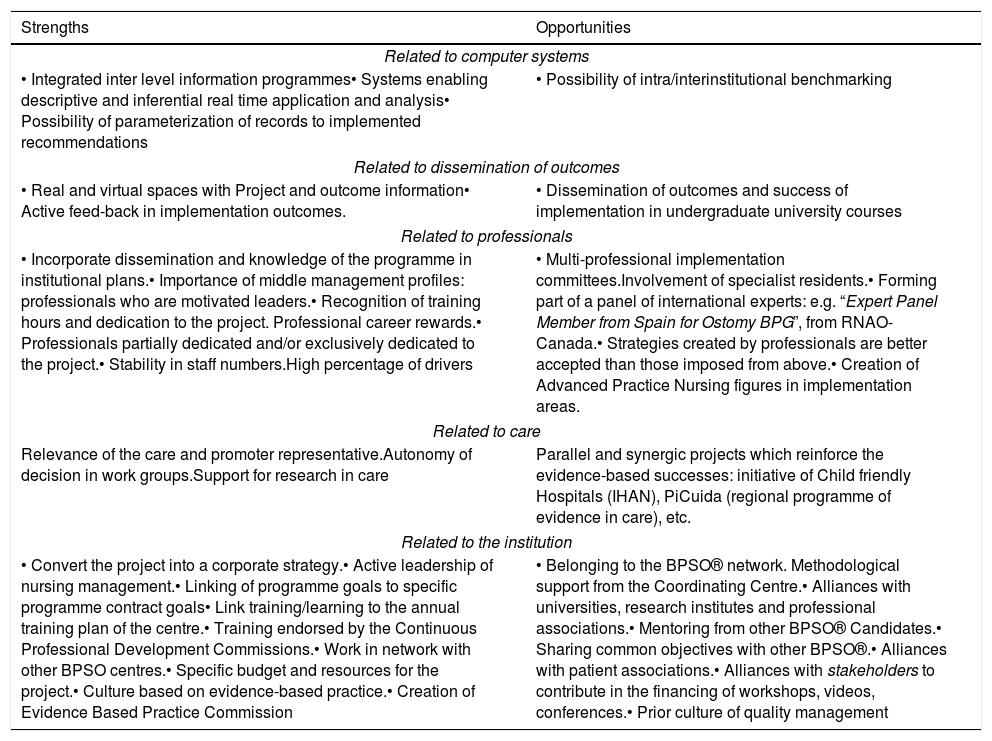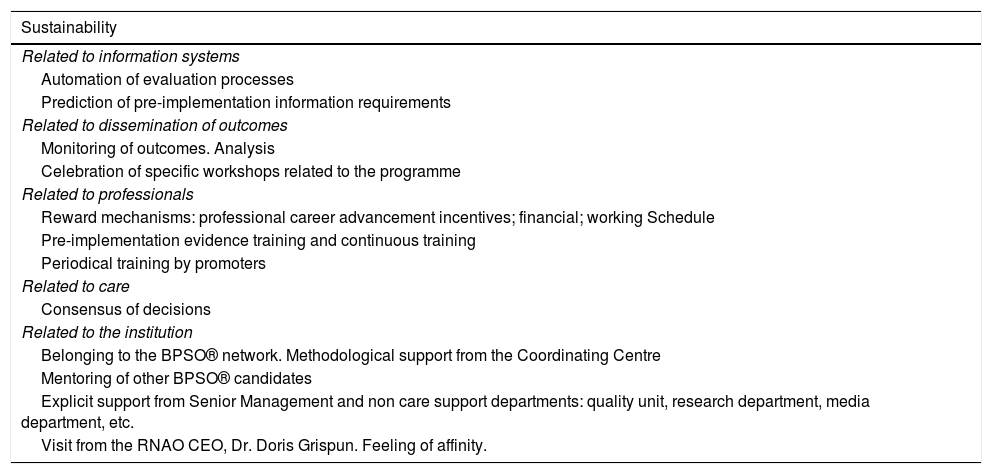To identify favourable elements and barriers to implementation in the Programme of Best Practice Spotlight Organization® that establish clinical practice guidelines of the Registered Nurse’ Association of Ontario, so that future experiences could benefit from the assessments presented here.
MethodEvaluation research study of the process of implementing guidelines in institutions that make up the first two cohorts of the programme in Spain, through analysis of contents of implantation reports and inductive process, reading, interpretation, coding and categorized according to SWOT structure: strengths, weaknesses, opportunities and threats.
ResultsReports from 18 centres in 12 Autonomous Communities have been analyzed, including 22 different guidelines. As weaknesses, problems related to information systems and their exploitation stand out for frequency and intensity. Other elements related to dissemination of results, to professionals, care and factors related to the institution are presented. Standing out as threats are the instability of staff and continued changes in Senior Management or corporate policies. Among the strengths, the exclusive dedication of personnel to the project and its link to institutional objectives are distinguished. As opportunities, the possibility of standardized comparison of own results with others, as well as the dissemination of results are highlighted.
ConclusionA useful pattern is set up to approach implementation in other scenarios, where changes in professional culture, training, communication and leadership, as well as aligning interests of managers and politicians, facilitate ideal conditions for evidence-based practice.
Identificar elementos favorecedores y barreras de implantación en el Programa de Centros Comprometidos con la Excelencia en Cuidados® que instauran guías de práctica clínica de la Registered Nurse’ Association of Ontario, con el fin de que experiencias futuras pudieran beneficiarse de las apreciaciones aquí expuestas.
MétodoEstudio de investigación evaluativa del proceso de implantación de guías en instituciones que componen las dos primeras cohortes del programa en España, mediante análisis de contenido de memorias de implantación y proceso inductivo, lectura, interpretación, codificación y categorización según estructura DAFO: debilidades, amenazas, fortalezas y oportunidades.
ResultadosSe han analizado memorias e informes de 18 centros de 12 Comunidades Autónomas, entre los cuales implantan 22 guías distintas. Como debilidades, destacan por frecuencia e intensidad, problemas relacionados con sistemas de información y su explotación. Se exponen otros elementos relacionados con difusión de resultados, profesionales, cuidados y factores relativos a la institución. Sobresalen como amenazas, la inestabilidad de plantillas y cambios continuados en la alta dirección o políticas corporativas. Entre las fortalezas, se distinguen la dedicación exclusiva de personal al proyecto y su vinculación a objetivos institucionales. Y por último, se identifica como oportunidades, destacan la posibilidad de comparación estandarizada de resultados propios con ajenos, así como la difusión de resultados.
ConclusiónSe configura un patrón útil para el abordaje de implantación en otras realidades, donde el cambio en la cultura profesional, su formación, comunicación y liderazgo, así como alinear intereses de gestores y políticos, facilitan unas condiciones ideales para la práctica basada en la evidencia.





